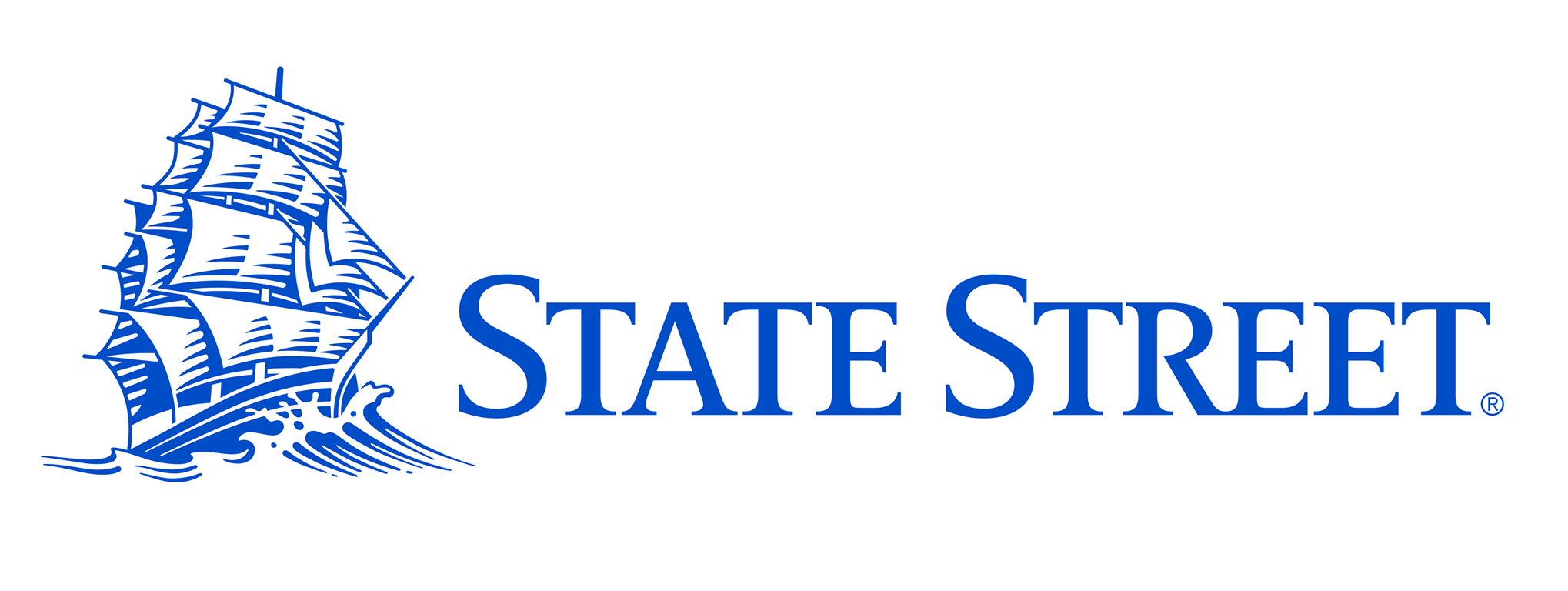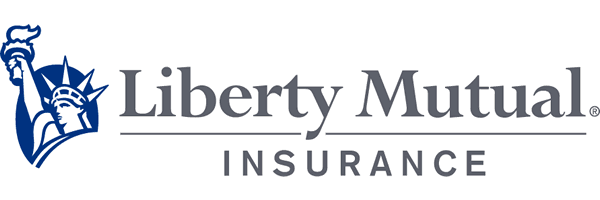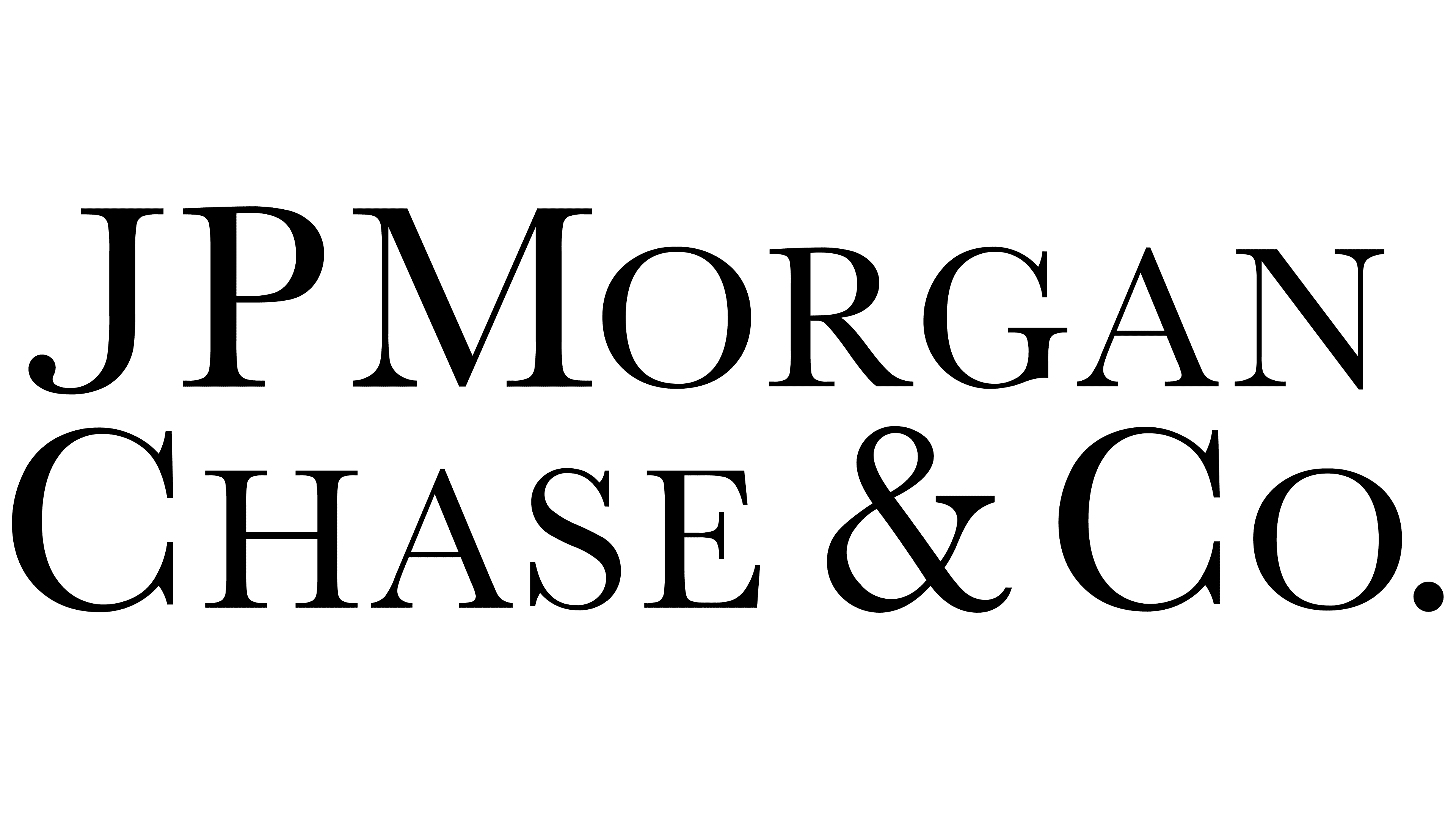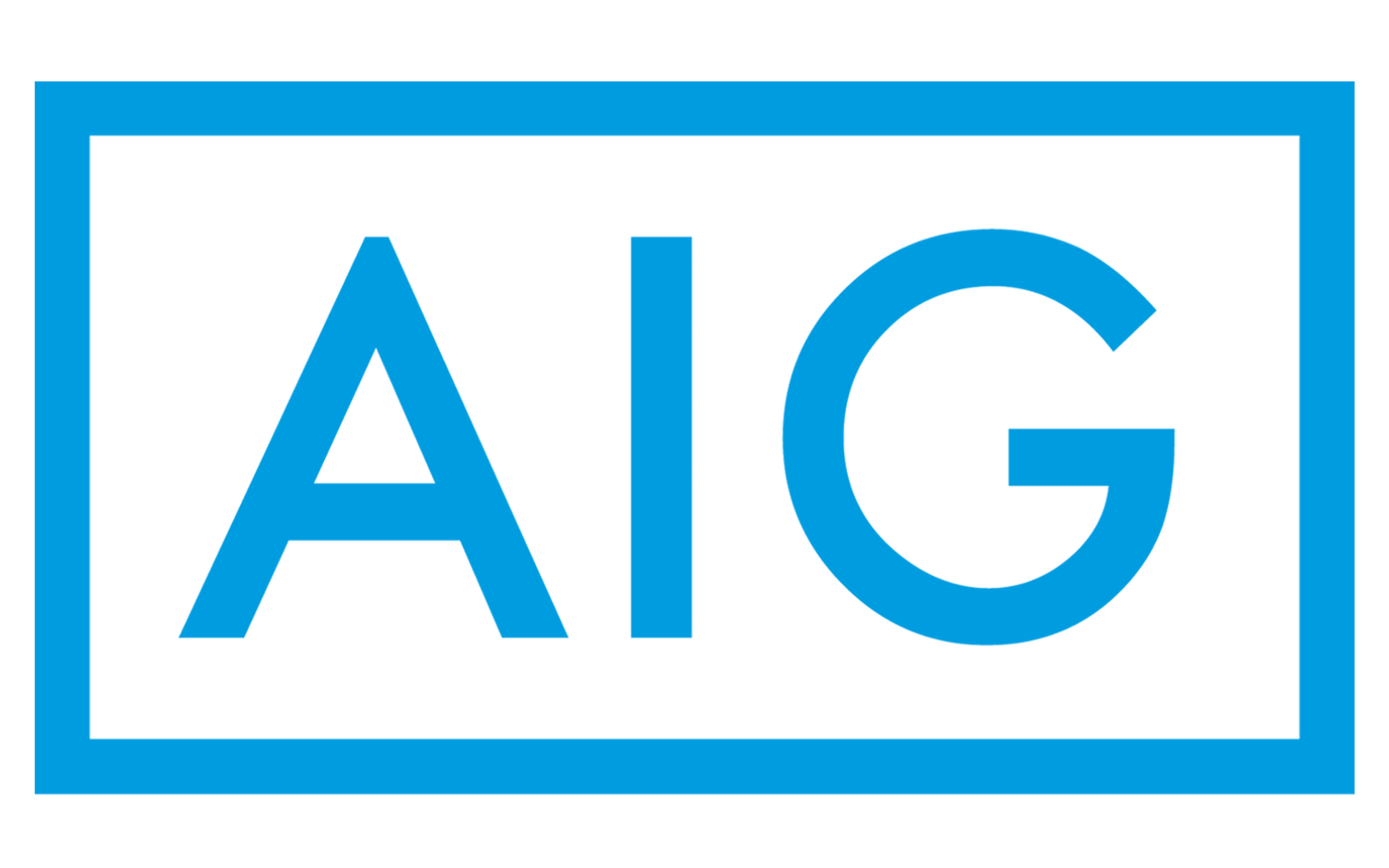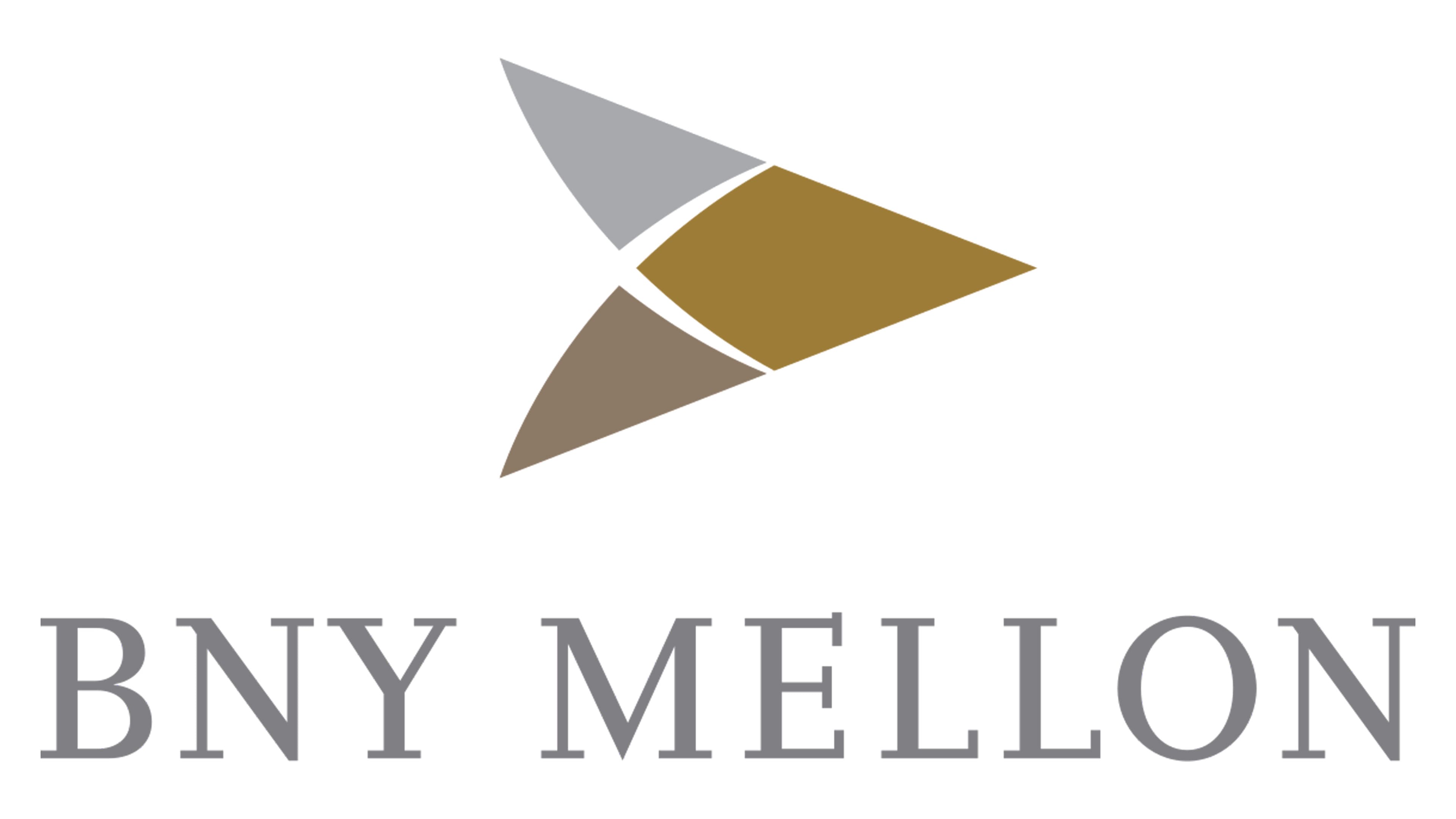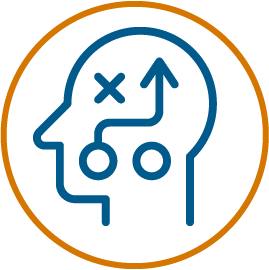Tuition
- This program consists of twelve 3-credit courses, or 36 credits.
- Online tuition is $575 per credit.
- On campus tuition is:
- $812.49 per credit for Massachusetts residents
- $1,402.91 per credit for New England residents
- $1,561.87 for out-of-state/international students
- Associated fees include a $950 College of Management fee, assessed in fall and spring semesters; cost is $450 for summer enrollment.
- Total estimated tuition cost* to complete this program starts at:
- $20,700 for online students
- $29,249.64 for on campus students from Massachusetts
- $50,504.76 for on campus students from New England
- $56,227.32 for out-of-state/international students
- Other fees apply. Request Info to connect with a program representative for further details.
*Cost varies depending on amount of online and on-campus credits taken.
Deadlines
- Fall Deadline: April 1 (priority deadline) and June 15 (final deadline)
- Spring Deadline: October 1 (priority deadline) and December 1 (final deadline)
- Summer Deadline: April 15
Checklist
- Online application with application fee.
- International graduate applicants: submit additional documentation, official TOFL or IELTS scores.
- Current professional résumé highlighting professional and academic contributions/qualifications.
- Official transcripts from all post-secondary institutions attended, both undergraduate and graduate. Applicants must have the equivalent of a United States bachelor’s degree to be eligible to apply. All transcripts are required, regardless of whether credits were transferred.
- Official GMAT or GRE scores, or apply for exam waiver consideration.
- Two (2) letters of recommendation from professional or academic references.
- Applicants must provide the name and email address for (2) references as part of the online application. Those references will receive an email notification directing them to a secure site to submit their recommendation. If references prefer to type a traditional letter, it should be sent as a PDF attachment referencing the applicant’s name, student ID number and program of interest, to GADocs@umb.edu.
- Essay: Use either the standard essay prompt in the online application or the one below.
- Part 1 (up to 300 words): Why are you interested in attending graduate school at UMass Boston?
- Part 2 (approx. 1,200 words): State a current issue, problem or topic from your intended field of study (This can be specific to your country, state or local community) and discuss your strategic plan as to how you would address the issue and how attending graduate school at UMass Boston will aid you in your pursuits.
International Students
All non-US transcripts must be evaluated by Center for Educational Documentation (CED) located at cedevaluations.com. We require a course-by-course evaluation report. Applicants must submit the evaluation package as well as a separate copy of their official transcript. All applicants, regardless of current citizenship, who have completed their undergraduate studies outside of the United States must take the TOEFL or IELTS exams.
Applicants may be exempt from submitting these test scores if they have received at least four years of education (including their undergraduate program) at an English-speaking college or university in the United States. Applicants may be exempt from submitting these test scores if they have received at least four years of education (including their undergraduate program) at an English-speaking college or university.
We encourage applicants to submit their complete application, including supplemental materials, early to allow sufficient time for application processing. For additional information or specific questions about the online application, or submitting application material, please contact the College of Management Graduate Programs Office directly at graduate.admissions@umb.edu or by calling 617.287.6400.
Where should I mail supplemental materials?
UMass Boston Graduate Admissions
100 Morrissey Boulevard
Boston, MA 02125
1. Required Courses:
- Organizational Analysis and Skills (MBAMGT 650) (online and on campus)
Identify characteristics and explore the strategic design and political and cultural implications for working in and managing such the organization of the future. Examine the impact of the new organization on the roles and careers of individual managers, the functioning of groups, the processes that exist within organizations, the relationships of organizations with their environments, and the learning and change practices needed to enhance global performance. Learn a variety of skills you’ll use throughout your MBA experience, including case analysis, analytical writing, self-awareness, teambuilding, oral communication.
- Business and Its Environment (MBAMGT 660) (online and on campus)
Explore the relationship of business to the external environment and considers business in relation to legal, social, political, and economic systems, focusing in particular on the impact of governmental regulation on business. Learn about the functioning of the US business enterprise in the context of the international business environment. Examine the role of ethics in management decision-making and explore how business organizations can operate effectively and responsibly in the context of the external environment.
- Strategic Management (MBAMGT 689) (online and on campus)
Consider the diverse situations typically confronted by upper-level management and strategies for managing these situations, using knowledge acquired through past courses. These strategies are based on an analysis of the internal conditions of the firm and the constraints and opportunities afforded by the external environment. You’ll develop strategy implementation plans that provide detailed descriptions of appropriate executive action.
- Economics for Managers* (MBA AF 601) (online and on campus)
Learn economic principles of particular interest to the firm manager. In a macroeconomic section, you’ll study key aggregates such as gross domestic product, unemployment rate, inflation rate, and balance of payments. You’ll critically examine and discuss how these aggregates are measured and determined in various competing theoretical models which serve as an analytical tool in understanding and evaluating economic policies related to current economic issues such as unemployment, inflation, and trade imbalances. In the microeconomic section, explore the theory of markets, how prices and quantities are determined in markets and factors that affect these prices and quantities; and how firms compete in different market environments. You’ll apply these concepts to real-world microeconomic problems.
- Accounting for Managers* (MBA AF 610) (on campus)
Learn the fundamentals of financial and managerial accounting. Study techniques used to measure business transactions, preparation of financial statements, recording and valuation of assets, owners' equity, revenue, cost, and expenses in financial accounting. Explore techniques for management decision-making, planning, and control in managerial accounting.
- Financial Management* (MBA AF 620) (online and on campus)
Gain an understanding and appreciation of the principles of corporate finance. Learn the theory and practice of financial decision making by managers and describe how financial theory can be used to address practical problems and to illuminate institutional aspects of the financial world. Explore concepts, including time value of money, capital budgeting, financial statement analysis, asset valuation, portfolio theory, capital structure, dividend policy, long-term financing, and issues of corporate control. Develop the skills and intellectual framework for addressing a variety of financial problems.
- Statistical Analysis for Managers* (MBAMS 630) (on campus and online)
Learn statistical techniques used in management decision-making and develop your ability to characterize management problems that can be solved by such techniques. Explore descriptive statistics, probability distributions, sampling, estimation, hypothesis testing, simple and multiple regression and correlation, chi square testing, analysis of variance, and decision theory. Apply what you learn through the use of appropriate industry software.
- Operations Management* (MBAMS 635) (on campus and online)
Gain familiarity with the analysis, planning, and control of operations and operating resources in both production and service organizations. Learn about product design and process selection, capacity planning, location and layout decisions, and inventory control. Study analytical techniques used in system design and operations planning and control problems. Apply what you learn through the use of appropriate industry software.
- Computer & Information Systems* (MBAMS 640) (on campus and online)
Examine the roles of information technologies (IT) and information systems (IS) in supporting an organization's operations, strategy, and change efforts. Get a comprehensive review of modern IT architectures and trends covering management of computer technologies, telecommunications, data organization, and IS applications. Explore the critical roles of IT and IS in innovating business models and processes, i.e., digital innovations, under different organizational settings. Study case-based scenarios to describe and understand key issues in the planning, development, and implementation of IT-dependent strategic initiatives for business.
- Marketing Management* (MBAMKT 670) (on campus and online)
Learn strategic decisions necessary to match organizational resources with market opportunities. Analyze market opportunities and develop marketing plans and marketing mix strategies and manage implementation and control of the marketing plan.
*Some students are eligible to substitute these courses and will receive this information prior to registration
2. Electives (Pick two from the following specializations. Students may choose courses from different specializations. Students may also choose to specialize in one area and complete the required courses for that specialization.):
Accounting Specialization (Pick Four):
- Intermediate Accounting** (MBA AF 611) (on campus)
Learn financial accounting theory. Explore the relationship between theory and practical problems such as the limitations of traditional financial statements and asset and current liability items. Acquire an understanding of issues unique to corporations and complete the study of the balance sheet by examining long-term debt and equity items.
- Cost Accounting** (MBA AF 612) (on campus)
Examine the use of cost accounting as a means of providing quantitative information for managerial decision-making and control. Analyze cost behavior, cost-volume-profit relationships, budgeting, and performance measurement.
- Federal Tax Planning** (MBA AF 613) (on campus)
Learn the concepts of gross income recognition, deductions, tax credits, and the income tax effects of property transactions, with emphasis on managerial decision-making and planning. Discuss these concepts in relation to alternative forms of business organization and the tax implications of each.
- Financial and Managerial Auditing** (MBA AF 614) (on campus)
Develop working skills in the techniques of financial and managerial auditing, and judgment in using audit information. Explore stewardship and the need for auditing, audit evidence and analytical techniques for sampling and drawing inferences, organizational issues in auditing, techniques and methods of managerial and strategic audits, and audit reporting.
- Accounting Information Systems** (MBA AF 618) (on campus)
Examine information systems used for managerial decision making and external reporting, with an emphasis on assuring systematic control over accounting information and on the reliability of that information. Computer and telecommunication systems are changing the way companies and non-for-profit organizations do business. As information becomes a competitive tool, line managers are encouraged to get more involved in decision making. As communication between companies and investors continues to shift from lagged formal reports (i.e., financial statements) to tailored, online reports, the importance of computer-based accounting systems will increase.
- The Legal Environment of Business** (MBAMGT 664) (on campus)
Broaden your understanding of our legal and regulatory system and how it affects you as a business manager. Businesses have become increasingly subject to laws and regulations. Legal and regulatory provisions pervade aspects of business such as the sale of securities; marketing practices; product liability; and business relationships with employees, customers, and other interested parties. Develop your ability to meet the legal and regulatory demands and responsibilities of contemporary business.
- International Accounting (MBA AF 615) (on campus)
Explore the international dimensions of financial accounting and analysis; the environmental influence of specific countries on international accounting standards and their related impact on financial reporting; and disclosure and analysis worldwide. Examine inflation accounting, foreign currency transactions, the translation of foreign financial statements, and the status of international accounting standards.
- Financial Statement Analysis/Advanced Accounting (MBA AF 616) (online and on campus)
Study and learn a framework for financial statement analysis. Understand how financial statements are generated by focusing on FASB principles. You’ll research current changes within the accounting framework and understand how to use the framework to interpret company financial statements. Explore ethical issues relating to accounting and financial statements.
- Environmental Accounting and Finance (MBA AF 631) (on campus)
Environmental concerns and climate change are emerging as important business drivers and gaining the attention of accountants, financial managers, and investors. As investors and society require companies to become more socially and environmentally sustainable, the measurement, management, and external reporting of information about environmental risks and performance is of growing importance. You’ll learn about corporate environmental disclosure and reporting, environmental management accounting, carbon markets, green project analysis, corporate environmental risk assessment and valuation, socially responsible investing, and green banking.
- Financial Reporting Fraud Examination (MBA AF 637) (online)
Examine various aspects of financial reporting fraud and its impact on financial statements using various techniques. Financial reporting fraud and earnings manipulation by managements of publicly traded companies are a continuing source of anxiety and concern to investors, creditors, regulators, and others who depend upon financial statements. In recent years the foundations of the capital markets have been ''shaken and stirred'' by disclosures of management schemes to ''cook the books.'' As preparation for the emerging field of fraud examination, you’ll gain an understanding of the nature, prevention, and detection of financial reporting fraud.
**Required courses to sit for CPA exam
Business Analytics Specialization (Complete Four Courses):
- Enterprise Business Intelligence (MSIS 670)
Explore business intelligence — what it can offer organizations and how it’s used in the real world — and develop an action plan to identify and act on business intelligence opportunities. Learn about business intelligence’s role in the effective management of an organization. Study the business, technical, and human components of business intelligence and see how real organizations applied these components to their organization. Finally, you’ll explore a framework and processes for identifying, evaluating, and acting on specific business intelligence opportunities.
- Enterprise Data Warehousing for Business Intelligence (MSIS 671)
Gain a comprehensive overview of data warehousing, including planning, design, deployment, and ongoing maintenance issues. Develop a clear understanding a clear understanding of techniques for data extraction from source systems, data cleansing, data transformations, data warehouse architecture and infrastructure, and information delivery. Learn about data marts, real-time information delivery, data visualization, requirements gathering methods, multi-tier architectures, OLAP applications, Web clickstream analysis, data warehouse appliances, and data mining techniques. You’ll get experience through hands-on exercises in commercial data warehousing modeling and implementation tools, and you’ll perform case analysis.
- Enterprise Data Mining and Predictive Analytics (MSIS 672)
Learn the theory behind the analytical concepts of data mining and how data mining techniques are used in strategic business decision making. Get a hands-on understanding of the key methods of data visualization, exploration, association, classification, prediction, time series forecasting, clustering, induction techniques, neural networks, and others. You’ll work as part of a team to solve a business problem of your choice, using data mining tools and applying them to data. Explore concepts used for building data mining frameworks needed in analyzing useful patterns in databases through the application of practical methods.
- Information Storage Management (MSIS 656)
Gain a comprehensive overview of network-based storage technology and information storage infrastructure. Learn about storage architectures, service features, benefits of Intelligent Storage Systems, and Storage Virtualization. Explore Networked storage technologies, including fiber channel (FC), based Storage Area Network (SAN), Network Attached Storage (NAS), and IP-SAN. You’ll also discuss advanced storage technologies on Content Addressed Storage (CAS), information security, and networked storage virtualization.
Environmental Management Specialization (Complete Three Courses):
- Introduction to Environmental Management (MBAMGT 671) (on campus)
Gain an understanding of current environmental issues as they relate to managerial decision-making. Examine issues from the worldwide perspectives of business and society with a focus on the issues of waste and recycling, air quality (including ozone depletion, global warming, and acid rain), water quality, resource management, biodiversity, and sustainable economic growth.
- Global Warming and International Business Management (MBAMGT 688L) (on campus)
Global warming may be the most important challenge that the human race has faced to date. We’re coming to grips with the ramifications of the potentially disastrous changes wrought by such contributing factors as fossil fuel consumption, deforestation, rapid population growth, and pollution. The economic consequences of these changes, however, have not been well explored. As a business leader and manager in the 21st century, you’ll need to develop a profound understanding of the results of environmental policies, energy use, and lifestyle choices on global warming.
- Environmental Accounting and Finance (MBA AF 631) (on campus)
Explore corporate environmental disclosure and reporting, environmental management accounting, carbon markets, green project analysis, corporate environmental risk assessment and valuation, socially responsible investing, and green banking. Environmental concerns and climate change are emerging as important business drivers and gaining the attention of accountants, financial managers, and investors. As investors and society require companies to become more socially and environmentally sustainable, the measurement, management, and external reporting of information about environmental risks and performance is of growing importance.
Finance Specialization (Pick Four):
- Financial Statement Analysis/Advanced Accounting (MBA AF 616) (online and on campus)
Learn how financial statements are generated by focusing on FASB principles. You’ll research current changes within the accounting framework so you can understand how to use the framework to interpret company financial statements. Explore ethical issues in accounting and finance.
- Financial Modeling (MBA AF 623) (online and on campus)
Explore the principles and techniques for building financial models, especially in an uncertainty framework. Learn about decision support systems, risk analysis, portfolio theory, and capital budgeting under uncertainty. You’ll study financial, accounting, and statistical concepts and techniques to construct financial models and to perform analyses using popular software applications. Identify and implement business solutions with an emphasis on the application of financial modeling techniques. The course is of special interest to students seeking more hands-on experience in constructing financial models and more in-depth knowledge in financial software.
- Portfolio Analysis and Investment Management (MBA AF 628) (online and on campus)
Gain an understanding of capital market securities, operations, valuation, and investment techniques. Learn the definitions of various investment vehicles, operation of the NYSE and NASDAQ markets, portfolio theory (CAPM and APT), and capital allocation decisions including discussions of mutual fund selection.
- Mergers & Acquisitions (MBA AF 635) (on campus and online)
Explore the challenging and dynamic world of mergers and acquisitions. Get a solid understanding of the concepts and issues that are central to the process of mergers and acquisitions with the intent of discovering the source(s) of value creation within mergers and acquisitions.
- Intermediate Accounting (MBA AF 611) (on campus)
Learn financial accounting theory. Explore the relationship between theory and practical problems such as the limitations of traditional financial statements and asset and current liability items. Acquire an understanding of issues unique to corporations and complete the study of the balance sheet by examining long-term debt and equity items.
- Advanced Corporate Finance (MBA AF 621) (on campus)
This course builds on the Financial Management (MBA AF 620) course. You’ll build principles and concepts developed Financial Management, including time value of money, capital budgeting, financial statement analysis, and more while exploring new topics including real options, convertible securities, lending, mergers, and acquisitions.
- International Financial Management (MBA AF 626) (on campus)
Explore the body of knowledge, attitudes, and skills required of financial decision-makers operation in a global setting. You’ll learn about the phenomenal rise in importance of multinational business finance and concomitant issues in light of recent theoretical and empirical research. Study foreign exchange, risk management, financing decisions in the long and short run, currency translation, accounting, and taxation.
- Health System Financial Management (MBA AF 627) (on campus)
Study the financial management theory, techniques, and issues applicable to public and private health organizations. Get a deep understanding of budgeting, capital formation, cost finding, reimbursement alternatives, financial analysis, and performance evaluation. Evaluate contemporary policy issues affecting the health care administrator.
- Environmental Accounting and Finance (MBA AF 631) (on campus)
Explore corporate environmental disclosure and reporting, environmental management accounting, carbon markets, green project analysis, corporate environmental risk assessment and valuation, socially responsible investing, and green banking. Environmental concerns and climate change are emerging as important business drivers and gaining the attention of accountants, financial managers, and investors. As investors and society require companies to become more socially and environmentally sustainable, the measurement, management, and external reporting of information about environmental risks and performance is of growing importance.
- Global Portfolio Investment Management (MBA AF 622) (on campus)
Explore portfolio investment management, i.e., the management of wealth in the form of readily marketable securities, in a global context with a focus on extensions of investment theory and practice to a multi-country field of portfolio choice. Study variables and constraints that modify concepts and practices useful in the domestic US market, including the problems of investing in a world of many currencies, differential economic growth, divergent institutional and legal environments, differing tuitional and legal environments, differing national accounting systems, and national valuation norms and practices. The course is of special interest to students preparing for possible careers in brokerage houses; in pension and mutual fund management; and as financial planners.
- Managing Mutual Funds (MBA AF 624) (on campus)
Learn about and discuss issues related to the financial management of mutual funds. Explore unique aspects of mutual funds, including their role in the financial markets, the impact on mutual funds of technology and regulatory systems, different types of mutual funds, security valuation, portfolio models, international diversification related to funds, and asset valuation and custodial services.
- Derivative Securities (MBA AF 625) (on campus)
Derivative securities are securities such as futures contracts and call options whose value is determined by the value of some other underlying variable. Derivative securities have become an essential tool used in both corporate risk management and portfolio management. You’ll explore the institutional details of the various markets in which derivatives trade. Learn about the theories which govern the pricing of futures, options, and swap contracts. Study practical methods of implementing derivatives-related strategies for hedging risks, gaining specified portfolio exposures, and methods used to evaluate the outcomes of these strategies.
- Asset Management Practicum (MBA AF 632) (on campus)
Get hands-on experience performing investment research, investing money, and managing a portfolio prior to entering the workforce. Generate investment ideas, research investment opportunities, and make buy/sell/hold recommendations based on your analysis. You’ll have the opportunity to work closely with money managers from Boston's financial services industry via the Student Manage Fund's advisory board.
- Risk Management (MBA AF 634) (on campus)
Learn the fundamentals of corporate financial risk management. Explore statistical tools and techniques required to identify and measure different aspects of corporate financial risk. Use these measures to build, evaluate, and understand financial risk management solutions. You’ll focus on the role of financial engineering in developing business strategy and how do companies financially engineer to manage risk caused by variables over which it has little control, such as commodity prices, inflation, interest and exchange rates.
- Quantitative Analysis of Business Data (MBA AF 636) (on campus)
Study the analytical foundations of quantitative analysis of business data and data management techniques using statistical/data analysis software. Get hands-on experience with data analysis and the economic interpretation of empirical findings. Learn a number of quantitative techniques employed in finance, economics, and management, including linear regression analysis, panel data models, instrumental variables, time series analysis, and limited dependent variable models. You’ll use data and applications that are drawn from the finance and economics literature as well as consulting practice. This course also provides students with analytical tools for the development of a master’s thesis.
Health Care Informatics Specialization (Complete Four Courses):
- Introduction to Health Informatics (MSIS 632)
Learn the core definitions of and the concepts behind health IT (HIT) systems, focusing on benefits and drawbacks. Examine how usability, consistency, and reliability contribute or detract from the effectiveness of HIT systems and how privacy, security, and confidentiality are built into HIT systems. Explore new areas of research and development in HIT systems and discuss the appropriateness and feasibility of new HIT development areas.
- Health Information Exchange: Management & Technology (MSIS 633)
Explore the values and principles of quality health care through integration of and access to reliable patient and transaction information. As the nature of health care is evolving due to advances in technology, health information exchange is taking an important role to improve the quality of healthcare. Learn how health information is electronically exchanged among organizations according to nationally recognized standards. Gain an understanding of the barriers to these exchanges as they relate to confidentiality, security, and identity management and how appropriate standards are used to share information.
- Health Information Privacy & Security (MSIS 634)
Evaluate the moral and ethical concerns of IT systems as they relate to health care, including security, privacy, and compliance issues. Learn about security issues including the importance of establishing a health care organization wide information security program, the ability to identify significant threats, learn about security standards, best practices, emerging issues and lessons learned from case studies. After completing this course, you’ll be able to evaluate and implement security in a health care environment.
- Health Information Analytics (MSIS 635)
Study ways to aid decision-making in health care by applying data-driven, computer-based tools to complex problems. Explore emerging information technologies for management support through data analysis and business intelligence systems. Learn the importance of proper formatting of data to obtain high quality results and identify the appropriate tools and techniques to implement business intelligence systems applied to the health care industry.
Information Systems Specialization (Pick Four):
- Business Data Communications & Computer Networks (MSIS 614) (on campus)
Develop a managerial level of technical knowledge and terminology for data, voice, image, and video communications and computer networks to effectively communicate with technical, operational, and management personnel in telecommunications. Learn the concepts, models, architectures, protocols, standards, and security for the design, implementation, and management of digital networks and apply data communications concepts to situations encountered in industry. Study general concepts and techniques of local area networks (LAN), wireless local area networks (WLAN), and wide area networks (WAN); and understand the technology of the Internet and the regulatory environment. Explore topics including network operating systems, e-commerce and associated web sites and practices, as well as middleware for wireless systems, multimedia, and conferencing.
- Business Programming (MSIS 615) (on campus)
Learn essential programming skills in the current business and analytical world. Explore modern programming topics such as object-oriented programming (OOP), functional programming (FP), database integration, web APIs, and mobile/location-based system programming. Learn how to program to solve analytical business problems.
- Management of the Supply Chain (MSIS 617) (on campus)
Learn how to create opportunities for revolutionizing manufacturing and logistics, with increased efficiencies in designing, operating, and managing supply chains. Study state-of-the-art models and practical tools for supply chain management and multi-plant coordination. Explore effective logistics strategies for companies operating in several countries and on the integration of supply chain components and their associated information workflows into a coordinated system to increase service levels and to reduce costs. Use Internet and developments in information systems and communication technologies with real-world case studies that illustrate and analyze important concepts, such as strategic partnering and outsourcing.
- Database Management (MSIS 618) (on campus)
Learn the fundamental concepts necessary for the design, use, and implementation of database systems. Explore the fundamentals of database modeling and design, the languages and facilities provided by database management systems, and the techniques for implementing relational database systems. Upon completion of the course, you’ll be able to use Entity-Relationship Diagrams as a tool to assist in logical database design, be able to design logical databases in third normal form, be able to identify current issues in the uses of database management systems, be able to identify issues in physical database implementation, and gain familiarity with industrial-strength database management systems.
- Systems Analysis and Design (MSIS 619) (on campus)
Explore the analysis and logical design of information systems development to support business process. Gain a thorough understanding of the theory of object orientation and a balance between theory and practice. Learn about Unified Modeling Language (UML), the de facto standard for object-oriented business systems analysis and design and get hands-on experience by using Computer Aided Software Engineering (CASE) tools for real-world problem-solving.
- Project and Change Management (MSIS 630) (on campus)
Learn how to manage projects in the context of change. Study concepts and techniques in project management such as planning, scheduling, and implementation. Get an understanding of change management as relevant to project management in a dynamic organizational environment. Develop an understanding of the software tools employed for project management and apply the concepts and software to hypothetical and real-world cases.
International Management Specialization (Pick Four):
- International Accounting (MBA AF 615) (on campus)
Explore the international dimensions of financial accounting and analysis; the environmental influence of specific countries on international accounting standards and their related impact on financial reporting; and disclosure and analysis worldwide. Examine inflation accounting, foreign currency transactions, the translation of foreign financial statements, and the status of international accounting standards.
- Global Portfolio Investment Management (MBA AF 622) (on campus)
Explore portfolio investment management, i.e., the management of wealth in the form of readily marketable securities, in a global context with a focus on extensions of investment theory and practice to a multi-country field of portfolio choice. Study variables and constraints that modify concepts and practices useful in the domestic US market, including the problems of investing in a world of many currencies, differential economic growth, divergent institutional and legal environments, differing tuitional and legal environments, differing national accounting systems, and national valuation norms and practices. The course is of special interest to students preparing for possible careers in brokerage houses; in pension and mutual fund management; and as financial planners.
- International Economy and Business (MBA AF 630)
Enhance your understanding of the economies of the world and their interdependence and analyze the impact of changing global financial and trade systems on businesses. Study topics related to integration such as EU, NAFTA and WTO, and international financial systems, such as currency union, fixed and floating exchange rate systems, global credit and currency crisis, IMF, international financing institutions, and financing opportunities for businesses. Get an understanding of dynamic overall global environment particularly in financial and trade areas, and analyze impact and opportunity for business.
- Cross-cultural and Comparative Management (MBAMGT 665) (on campus)
Learn frameworks to understand, analyze critically, and practice cross cultural/international management under globalization. Gain an in-depth understanding of and critically analyze the ways in which cross-cultural differences in values have consequences for management behaviors in terms of cooperation, ethics and decision making, leadership, negotiation, teamwork, and human resources. Get an understanding of how the broader context of difference and dependence among nations and people materialize into individual and group differences in conceptualizing and practicing cross-cultural/international management.
- Managing in the Global Economy (MBAMGT 675) (on campus)
Acquire an in-depth conceptual and operational understanding of a group of countries, with the purpose of acquiring the technical skills necessary to enter, network, structure, manage, and eventually exit effectively from a foreign environment.
- Global Industry and Competitive Analysis (study abroad trip, varies each term) (MBAMGT 685)
Examine techniques of industry and competitive analysis and ways of applying these techniques to gain a better understanding of industry trends and company strategies in sectors of significant importance to the regional economy.
- Global Warming and International Business Management (MBAMGT 688L) (on campus)
Global warming may be the most important challenge that the human race has faced to date. We’re coming to grips with the ramifications of the potentially disastrous changes wrought by such contributing factors as fossil fuel consumption, deforestation, rapid population growth, and pollution. The economic consequences of these changes, however, have not been well explored. As a business leader and manager in the 21st century, you’ll need to develop a profound understanding of the results of environmental policies, energy use, and lifestyle choices on global warming.
- International Marketing (MBAMKT 674) (on campus)
Explore a systematic treatment of marketing on a global scale. Learn about the world market environment and its characteristics; identifying opportunities; and the development, implementation, and control of multinational marketing programs.
- Entrepreneurship in the US & China (study abroad trip) (MBAMKT 680)
Through both lectures and company visits in China and the US, get an in-depth look at how business is conducted in both countries. The unique global comparative approach provides you with both theoretical foundations and first-hand experiences to learn the differences and similarities of different managerial systems and entrepreneurial practices in different cultural settings. Study the relationships between management functions such as marketing, human resources, accounting, finance, and information technology and the social, economic, political, and technological environments in different cultures.
- Management of the Supply Chain (MSIS 617) (on campus)
Learn how to create opportunities for revolutionizing manufacturing and logistics, with increased efficiencies in designing, operating, and managing supply chains. Study state-of-the-art models and practical tools for supply chain management and multi-plant coordination. Explore effective logistics strategies for companies operating in several countries and on the integration of supply chain components and their associated information workflows into a coordinated system to increase service levels and to reduce costs. Use Internet and developments in information systems and communication technologies with real-world case studies that illustrate and analyze important concepts, such as strategic partnering and outsourcing.
Internet Marketing Specialization (Pick Four):
- Marketing Research (MBAMKT 671) (on campus)
Improve your ability to use research as a formalized means of obtaining information to be used in making decisions in the context of increasingly globalized, diverse, and information-oriented marketplaces, business worlds, and nonprofit organizations. During the information collection, analysis, and report process, you’ll learn a set of fundamental marketing research skills of problem formulation, research design, measurement scale development, questionnaire design, data collection, basic and multivariate data analysis, report writing, and presentation.
- Marketing Analytics (MBAMKT 676) (on campus)
- Database & Internet Marketing (MBAMKT 677) (online)
- Digital Marketing (MBAMKT 682) (online)
Explore contemporary digital marketing strategies and practices. Learn how to create and disseminate marketing content on digital channels, including email blast, webpage design, search engine optimization, live streaming, and mobile messaging; and streamline an organization's digital marketing process, including lead generation, salesforce automation, and customer experience management. Incorporate strategic frameworks with practical tools, including customer information management, leading digital marketing applications, systems, and solutions.
- Social Media Marketing (MBAMKT 691) (on campus)
Social media provides marketers with several important capabilities not present in most other media including interactivity and measurability. Platforms like Facebook, Foursquare, and Twitter have a fundamental impact on the way businesses and consumers behave, communicate, and interact with each other. In this course, you’ll deal with the possibilities that social media can offer companies and how it can be used to retain and interact with consumers. Explore established theoretical models and best practice business cases as you examine mobile services, as well as the special characteristics of social media.
Leadership & Organizational Change Specialization (Complete Four):
Required Courses (Two):
- Leadership Management in the 21st Century (MBAMGT 683) (on campus)
Explore leadership as it is practiced in corporate and public-sector environments. You’ll learn about the role of leaders in guiding organizations through turbulent business climates, in motivating subordinates and teams, and in crafting strategic visions for their organizations. Throughout the course, you’ll discuss change management, globalization, and human resource management factor.
- Cross-cultural and Comparative Management (MBAMGT 665) (on campus)
Learn frameworks to understand, analyze critically, and practice cross cultural/international management under globalization. Gain an in-depth understanding of and critically analyze the ways in which cross-cultural differences in values have consequences for management behaviors in terms of cooperation, ethics and decision making, leadership, negotiation, teamwork, and human resources. Get an understanding of how the broader context of difference and dependence among nations and people materialize into individual and group differences in conceptualizing and practicing cross-cultural/international management.
Electives (Pick Two):
- Labor-Management Relations and the Collective Bargaining Process (MBAMGT 652) (on campus)
Learn about the practice of labor-management relations in the United States. The nature of labor-management conflict, the development of the US labor movement, and a comparison to other Western labor movements provide the theoretical and historical framework needed to assess the effectiveness of current practice and trends in the development of new practices and institutions. You’ll explore the tactics and strategies of management and union representatives and the legal and economic constraints on their behavior in the organization of unions, contract negotiation, and contract administration and interpretation.
- The Legal Environment of Business (MBAMGT 664) (on campus)
Broaden your understanding of our legal and regulatory system and how it affects you as a business manager. Businesses have become increasingly subject to laws and regulations. Legal and regulatory provisions pervade aspects of business such as the sale of securities; marketing practices; product liability; and business relationships with employees, customers, and other interested parties. In this course, you’ll develop your ability to meet the legal and regulatory demands and responsibilities of contemporary business.
- Introduction to Environmental Management (MBAMGT 671) (on campus)
Gain an understanding of current environmental issues as they relate to managerial decision-making. Examine issues from the worldwide perspectives of business and society with a focus on the issues of waste and recycling, air quality (including ozone depletion, global warming, and acid rain), water quality, resource management, biodiversity, and sustainable economic growth.
- Managing in the Global Economy (MBAMGT 675) (on campus)
Acquire an in-depth conceptual and operational understanding of a group of countries, with the purpose of acquiring the technical skills necessary to enter, network, structure, manage, and eventually exit effectively from a foreign environment.
- Nonprofit Management (MBAMGT 687) (on campus)
Nonprofit organizations aim to improve society while facing similar management challenges to any organization as they provide valued goods and services. This large and growing sector includes colleges and universities, hospitals and social service entities, and human rights.
- Social Media Marketing (MBAMKT 691) (on campus)
Social media provides marketers with several important capabilities not present in most other media including interactivity and measurability. Platforms like Facebook, Foursquare, and Twitter have a fundamental impact on the way businesses and consumers behave, communicate, and interact with each other. In this course, you’ll deal with the possibilities that social media can offer companies and how it can be used to retain and interact with consumers. Explore established theoretical models and best practice business cases as you examine mobile services, as well as the special characteristics of social media.
- Written Communication for Managers (MBAACM 684) (online)
Study fundamental theories and strategies needed for effective writing in diverse management situations. The course perspective is that of the manager in a multi-national organization. You’ll focus on the impact of written messages on receivers, both internal and external to the organization in the context of communication in the global marketplace, bearing in mind that although English is used extensively in doing business in the world communication is always influenced by culture. You’ll explore fundamental topics, including audience awareness, organizational strategies, content development, language control, persuasion, intercultural communication, and message channel choices.
Marketing Specialization (Pick Four):
- Entrepreneurship Sales & Marketing (MBAMKT 668) (on campus)
This course prepares you for an entry level sales and marketing position in a startup initiative, as well as prepares you to launch your own sales and marketing initiative in your own startup. You’ll experience live role play scenarios with experienced sales and marketing entrepreneurs for the multiple areas of responsibilities and interactions within a startup organization, as well as outward facing prospect and customer responsibilities and interactions that are required in a startup. You’ll get exposure to the overall process and tools that drive a sales/marketing organization in a startup. You’ll also be provided preparation assistance and given priority consideration to the internships offered through UMass Boston's Student Entrepreneurship Program (StEP)
- Marketing Research (MBAMKT 671) (on campus)
Improve your ability to use research as a formalized means of obtaining information to be used in making decisions in the context of increasingly globalized, diverse, and information-oriented marketplaces, business worlds, and nonprofit organizations. During the information collection, analysis, and report process, you’ll learn a set of fundamental marketing research skills of problem formulation, research design, measurement scale development, questionnaire design, data collection, basic and multivariate data analysis, report writing, and presentation.
- Marketing Communications (MBAMKT 673) (on campus)
Develop an integrated communications strategy, blending individual external elements such as advertising, personal selling, sales promotion (including direct marketing and trade shows), and publicity with internal communications. The course is managerial in nature and provides you with the necessary ability to analyze, plan, implement, and control marketing communications programs.
- International Marketing (MBAMKT 674) (on campus)
Explore a systematic treatment of marketing on a global scale. Learn about the world market environment and its characteristics; identifying opportunities; and the development, implementation, and control of multinational marketing programs.
- Brand Management (MBAMKT 684) (online and on campus)
To successfully compete in today's global economy, companies and marketers must learn the concepts, techniques, and guidelines to build and manage strong brands. This course will help you understand brand management process. You’ll learn how to 1) establish strong and competitive positions, 2) create brand resonance with customers, 3) integrate brand marketing programs, 4) align internal and external marketing activities, 5) understand the ROI of marketing investments, 6) leverage brand equity across categories and markets, 7) achieve market balance in managing rand equity over time, 8) design and implement brand strategies, and 9) envision the future of branding, etc. As a key learning outcome, a Brand Audit project will be conducted by students in groups.
Nonprofit Management Specialization (Complete Four Courses)
Required Course (One):
- Nonprofit Management (MBAMGT 687) (on campus)
Nonprofit organizations aim to improve society while facing similar management challenges to any organization as they provide valued goods and services. This large and growing sector includes colleges and universities, hospitals and social service entities, and human rights.
Electives (Pick Three):
- Health System Financial Management (MBA AF 627) (on campus)
Study the financial management theory, techniques, and issues applicable to public and private health organizations. Get a deep understanding of budgeting, capital formation, cost finding, reimbursement alternatives, financial analysis, and performance evaluation. Evaluate contemporary policy issues affecting the health care administrator.
- Management of Health Care Organizations (MBAMGT 680) (on campus)
Explore the roles of the health systems manager as planner, organizer, leader, and integrator of health programs. You’ll learn how these roles differ from industry's roles, as well as the special demands made of the manager in a health systems organization.
- Health Systems and Public Policy (MBAMGT 681) (on campus)
Examine the interface of government, health, and the private sector. You’ll explore the various roles government plays as promoter, regulator, and buyer of health services.
- Written Communication for Managers (MBAACM 684) (online)
Study fundamental theories and strategies needed for effective writing in diverse management situations. The course perspective is that of the manager in a multi-national organization. You’ll focus on the impact of written messages on receivers, both internal and external to the organization in the context of communication in the global marketplace, bearing in mind that although English is used extensively in doing business in the world communication is always influenced by culture. You’ll explore fundamental topics, including audience awareness, organizational strategies, content development, language control, persuasion, intercultural communication, and message channel choices.
Supply Chain and Service Management Specialization (Pick Three):
- Lean & Six Sigma Management (MBAMS 652) (on campus)
In this course, you’ll study how to use new leading-edge methods, including High performance, Six Sigma, and Lean management, and IS management methods, for creating required competitive advantages. You’ll focus on how a company can create and deliver high value and quality to end-users, how it can design products and services so these will start their lives as growth products when launched, how the companies can manage its value chains so they become capable of operating with a productivity advantage at competitively low costs, and how the two — the value and the productivity advantages — drive sustained growth of the “bottom line”, a company's net income. You’ll study how, in this very competitive world, these new high-performance methods will achieve stellar ''bottom line'' business results in an accelerated time frame under dynamically changing circumstances.
- Management of the Supply Chain (MSIS 617) (on campus)
Learn how to create opportunities for revolutionizing manufacturing and logistics, with increased efficiencies in designing, operating, and managing supply chains. Study state-of-the-art models and practical tools for supply chain management and multi-plant coordination. Explore effective logistics strategies for companies operating in several countries and on the integration of supply chain components and their associated information workflows into a coordinated system to increase service levels and to reduce costs. Use Internet and developments in information systems and communication technologies with real-world case studies that illustrate and analyze important concepts, such as strategic partnering and outsourcing.
- Project and Change Management (MSIS 630) (on campus)
Learn how to manage projects in the context of change. Study concepts and techniques in project management such as planning, scheduling, and implementation. Get an understanding of change management as relevant to project management in a dynamic organizational environment. Develop an understanding of the software tools employed for project management and apply the concepts and software to hypothetical and real-world cases.
- Operational Risk Management (MSIS 631) (on campus)
Explore the role of ''operational risk management'' in different aspects of business. You’ll start with a session of definitions and preliminary discussions to show the big picture of the risk management discipline. Then you’ll study how different risks that an organization faces can be categorized according to their natures, probabilities, and impacts. You’ll learn how the probability of these risks can be reduced and how the impacts can be mitigated. Finally, you’ll focus on how an organization can recover faster and more efficiently from a realized risk. Throughout this course, the emphasis is to show the importance of managing the inevitable risks as sources of opportunity for organizations.
- Management Decision Models (MBA MS 638) (on campus)
Using the framework of data, models, and decisions, you’ll explore the systematic use of data and models in decision-making. You’ll acquire an appreciation of management science approaches to solving problems in business or government, public or private, and profit or not-for-profit sectors. You’ll discuss examples of problems from various sectors and from various functional areas. You’ll gather data about these problems, develop models, and explore solutions using computer-based analysis and managerial judgment. In addition, “what if” analyses are used to determine the sensitivity of model solutions to uncertainties in data inputs. The course is computer-based, using many of the advanced features on Excel and/or other software packages.
- Decision and Risk Analysis (MSIS 643) (on campus)
This course combines elements of probability, economics, logic, psychology, and domain knowledge to characterize and analyze complex decision problems. You’ll gain familiarity with the basic theory and methods from classic and recent texts and examine some real-world applications from recent journal publications. You’ll focus on connections between the approaches covered and developments in information systems and in analytics.
Master Thesis Option
Students specializing in any area, except Business Analytics and Health Care Informatics, may complete the Master Thesis Option (MTO). The MTO provides you with the opportunity to differentiate your graduate degree with a coveted distinction in research and prepares you for a successful career in your chosen field.



